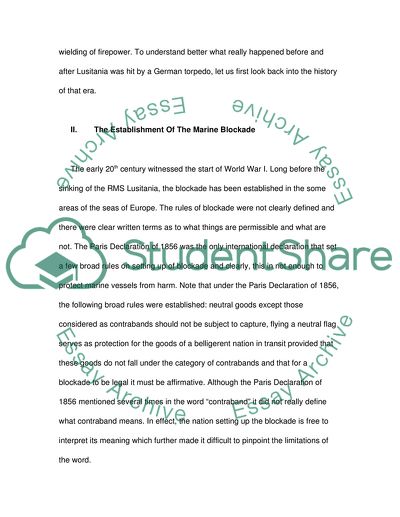Cite this document
(President Wilson's Dealing with the Lusitania Crisis Essay, n.d.)
President Wilson's Dealing with the Lusitania Crisis Essay. Retrieved from https://studentshare.org/history/1708847-critically-assess-president-woodrow-wilsons-handling-of-the-crisis-caused-by-the-sinking-of-the-lusitania-on-may-7-1915-why-did-he-resist-pressure-from-subst
President Wilson's Dealing with the Lusitania Crisis Essay. Retrieved from https://studentshare.org/history/1708847-critically-assess-president-woodrow-wilsons-handling-of-the-crisis-caused-by-the-sinking-of-the-lusitania-on-may-7-1915-why-did-he-resist-pressure-from-subst
(President Wilson'S Dealing With the Lusitania Crisis Essay)
President Wilson'S Dealing With the Lusitania Crisis Essay. https://studentshare.org/history/1708847-critically-assess-president-woodrow-wilsons-handling-of-the-crisis-caused-by-the-sinking-of-the-lusitania-on-may-7-1915-why-did-he-resist-pressure-from-subst.
President Wilson'S Dealing With the Lusitania Crisis Essay. https://studentshare.org/history/1708847-critically-assess-president-woodrow-wilsons-handling-of-the-crisis-caused-by-the-sinking-of-the-lusitania-on-may-7-1915-why-did-he-resist-pressure-from-subst.
“President Wilson'S Dealing With the Lusitania Crisis Essay”, n.d. https://studentshare.org/history/1708847-critically-assess-president-woodrow-wilsons-handling-of-the-crisis-caused-by-the-sinking-of-the-lusitania-on-may-7-1915-why-did-he-resist-pressure-from-subst.


